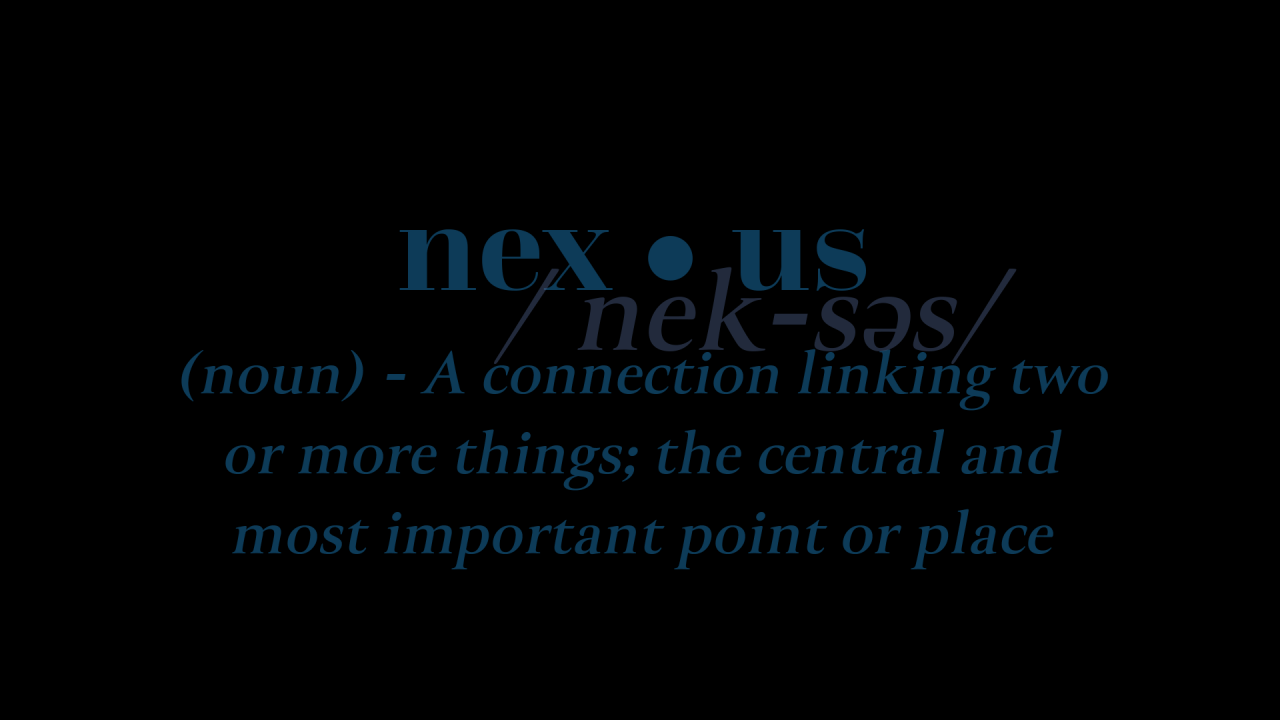
Nexus definition is a multifaceted concept that delves into the intricate connections and interrelationships that exist within various realms. From its etymological roots to its diverse applications in law, science, and beyond, nexus serves as a fundamental principle in understanding the interconnectedness of our world.
The term “nexus” originates from the Latin word “nectere,” meaning “to bind” or “to tie.” It encompasses a broad range of meanings, including a connection, a link, or a point of intersection. In different contexts, nexus can refer to causal relationships, logical dependencies, or physical proximities.
Nexus: Definition and Etymology: Nexus Definition

The term “nexus” originates from the Latin word “nectere,” meaning “to bind” or “to tie.” It refers to a connection, link, or relationship between two or more entities or elements.
In various contexts, “nexus” can imply a physical connection, a logical relationship, or a causal relationship. For example, in physics, it describes the relationship between cause and effect, while in law, it refers to a connection between a person or entity and a jurisdiction.
Types of Nexus
Nexus can be categorized into different types based on its nature and characteristics:
- Causal Nexus:A relationship where one event (cause) directly leads to another event (effect).
- Logical Nexus:A relationship based on reason or inference, where one statement or idea logically follows from another.
- Physical Nexus:A tangible or spatial connection between two or more objects or entities.
Nexus in Law, Nexus definition
In legal contexts, “nexus” refers to the connection between a person or entity and a particular jurisdiction. It is crucial for determining the applicability of laws and regulations.
Establishing nexus typically involves factors such as physical presence, residency, or business activities within a jurisdiction.
Nexus in Science and Technology
In scientific research and technological advancements, nexus plays a significant role:
- Physics:Nexus describes the relationship between forces, particles, and interactions.
- Computer Science:It refers to the connections between computer systems, networks, and data.
- Engineering:Nexus is used to analyze the interrelationships between components and systems.
Conclusion

In conclusion, nexus definition provides a comprehensive framework for examining the interconnectedness of phenomena across disciplines. Whether in the realm of law, science, or art, understanding nexus enables us to unravel complex relationships, derive meaningful insights, and appreciate the intricate tapestry of our existence.
Questions and Answers
What is the etymology of the term “nexus”?
The term “nexus” originates from the Latin word “nectere,” meaning “to bind” or “to tie.”
Can you provide an example of nexus in law?
In law, nexus refers to the connection between a person or entity and a particular jurisdiction, which determines their legal obligations and rights within that jurisdiction.
How is nexus utilized in science?
In science, nexus plays a crucial role in identifying cause-and-effect relationships, establishing logical connections between theories and observations, and understanding the interconnectedness of natural phenomena.